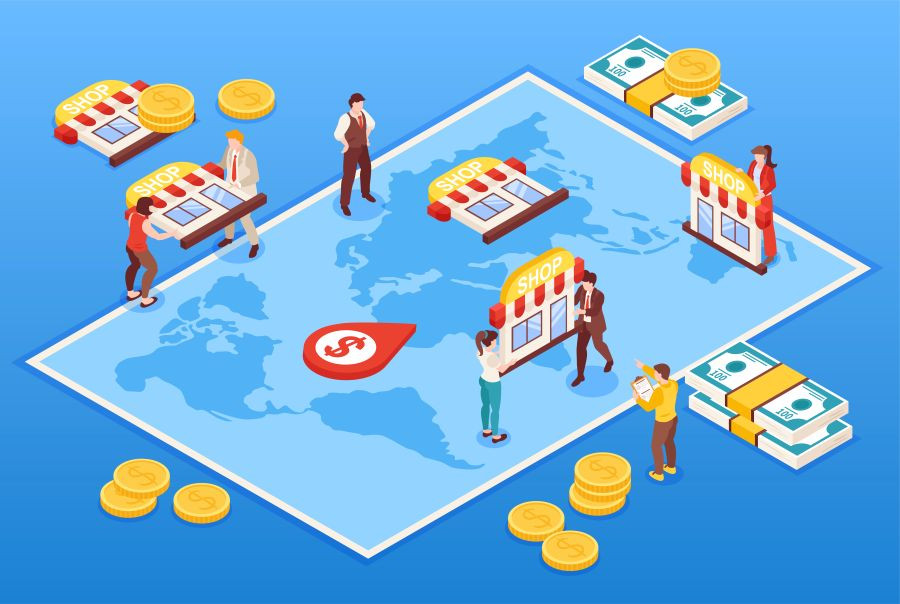How might the Trump tariffs impact the way countries trade with the U.S.? Could a trade war make life harder for people in your community?
Stock markets are dropping fast, and people everywhere are worried about what comes next.
This is the scene unfolding right now, sparked by U.S. President Donald Trump’s latest comments on tariffs.
He recently called these trade taxes “medicine” for the economy, but the reaction from global markets, especially in Asia, suggests something else entirely.
What’s behind this chaos, and how does it affect everyday people? Let’s break it down.
On April 6, 2025, Trump spoke to reporters on Air Force One, defending his plan to place heavy tariffs on goods coming into the U.S. from other countries.
These tariffs are taxes that make imported products more expensive, and Trump believes they’ll help American businesses by encouraging people to buy local.
However, his words sent shockwaves across the globe. The very next day, April 7, Asian stock markets took a steep dive, and the panic spread to Europe and beyond.
Why? Because when the U.S., a massive buyer of goods, raises prices on imports, it rattles the countries that depend on selling to America.
Trump Tariffs Impact: Asian Markets Feel the Heat

Asia woke up to a rough Monday. Japan’s Nikkei 225 index dropped nearly 8%, while Hong Kong’s Hang Seng index fell over 12%—one of its worst days in years.
South Korea even had to pause trading briefly because stocks were plunging too fast. These countries sell everything from cars to electronics to the U.S., and Trump’s tariffs threaten to make those goods pricier for American buyers.
If Americans buy less, Asian companies lose money, jobs could disappear, and entire economies might slow down.
Trump says it’s a tough but necessary step, like taking medicine to get better, but many see it as a risky move that could make things worse before they improve.
The reaction wasn’t just in Asia. European markets, like London’s FTSE 100 and Germany’s Dax, also slid by 5% or more.
Investors everywhere are nervous, selling off stocks and bracing for what might come next. Some experts warn that this could spark a global trade war, where countries start taxing each other’s goods in retaliation.
China, for example, has already hit back with a 34% tariff on U.S. products, showing it’s ready to fight fire with fire.
What Does This Mean for You?

You might be wondering how this affects your life. Tariffs can raise the price of things you buy every day—think phones, clothes, or even groceries if they come from abroad.
American companies might benefit if people switch to U.S.-made products, but those could cost more too, since many rely on imported parts.
On the flip side, Trump argues that the tariffs’ impact will be positive. It will bring jobs back to America by making foreign goods less appealing.
His team claims over 50 countries are already begging to negotiate, hoping to avoid the taxes. But critics, including some big investors, say the short-term pain could lead to a recession—a time when the economy shrinks, and jobs get harder to find.
The U.S. stock market hasn’t been spared either. Last week, it saw its worst drop since 2020, losing trillions in value.
People with savings or retirement funds tied to stocks are feeling the sting. And while Trump insists the economy will “boom” in the long run, not everyone is convinced.
Some leaders, like billionaire Bill Ackman, have even called for a pause, warning of an “economic nuclear winter” if the tariffs go too far.
A Global Trade War

This isn’t just about money—it’s a power play. Trump wants countries to pay the U.S. to lift these tariffs, saying they’ve taken advantage of America for years.
He’s betting this pressure will force them to the table. But nations like China and the European Union aren’t backing down easily.
They’re preparing their own plans, which could mean more taxes on American goods like cars or food. It’s a high-stakes game, and right now, no one knows who’ll blink first.
As the dust settles, the world watches. Will Trump’s “medicine” heal the U.S. economy, or will it leave a bitter taste for everyone?
For now, markets are jittery, prices might climb, and the future feels uncertain.




